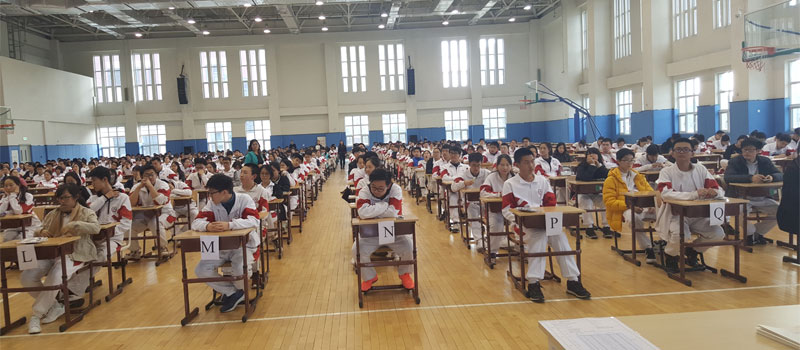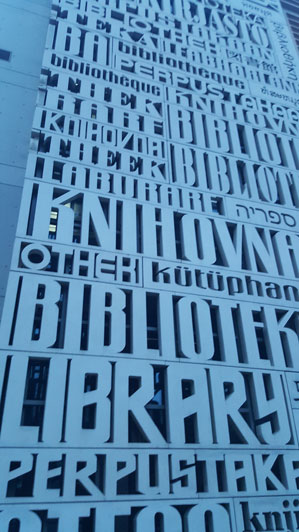Our Group Chief Executive, Simon Lebus, reflects on this year's annual Global Teacher Prize winner and the edtech innovation coming out of China, where he was shown around a Beijing school by a budding Eliza Doolittle.
The annual Global Education and Skills Forum took place in Dubai in March. This is an annual event organised by the Varkey Foundation, which brings together educators and policy makers from across the world, and which each year - in a great initiative to highlight the fantastic work teachers do in a number of different and sometimes very challenging environments - features a US $1m
Global Teacher Prize. This year it was awarded to Maggie MacDonnell, a teacher who works with secondary school pupils in the Canadian Arctic, where harsh winters and isolation create a number of social problems, including terrible depression.
I was fortunate enough to attend this event last year when the winner, a Palestinian teacher, was announced in a message pre-recorded by the Pope. This was definitely one notch up from former president Bill Clinton, who had done the honours in a previous year, and it had led me to speculate whether the Varkey Foundation would be able to up the ante this year. Remarkably enough, they succeeded by arranging to have the winner announced from outer space - in this case, by French astronaut Thomas Pesquet in a video from the International Space Station.
Also speaking at the conference was Andreas Schleicher, who announced plans to introduce new "global competencies" tests alongside the tests that already exist for reading, maths, and science. One primary objective of education is to produce young people who are capable of being active citizens, an essential requirement being the possession of those critical faculties that young people need to navigate their way around the new digital universe, including being able to identify 'fake news' - that peculiar amalgam of half-truth, comment, and speculation that is at the heart of much rolling 24 hour news coverage.

This is also an increasing preoccupation of educators in China. I was in Beijing last week and was lucky enough to have the opportunity to visit the RDF Chaoyang school. This is a state private school that is affiliated with the prestigious Renmmin University and which runs a programme that combines elements of both Chinese and international curricula. Unlike many private schools in China, the educational experience provided there has a focus that extends well beyond maths and science, and they offer an unusually wide range of Cambridge IGCSEs and Cambridge International A Levels (pictured above are some 600+ students about to sit a Cambridge IGCSE exam). There is also a lot of emphasis on extra-curricular activities, such as dance, music, and theatre, and I was shown round the school by two 'Class Ambassadors', one of whom was acting the part of Eliza Doolittle in the school's production of Pygmalion, and who was able to give me a delightful rendition of her cockney accent. The thinking behind such a broad curriculum is that pupils will develop some of the social and life skills that they need to function successfully when they move into higher education and employment, a particular necessity given the very high drop-out rate (
some estimates suggests as many as one in four) of Chinese students going into higher education in the US, where many of them are eventually bound.

Earlier in the week I had also been to the Beijing Foreign Studies University, formerly the Beijing Foreign Languages Institute. This was established in 1941 with the purpose of providing a skilled cadre of foreign language experts who could support Chinese international engagement. Some 70 languages are now taught there, a diverse range reflected in the design of the new library, the façade of which features a concrete panel showing the word 'library' in many of the various different languages taught there. (Pictured left).
Much of the rest of the week was spent talking to various edtech companies. The huge Chinese population means that there is particular scope to deploy big data to support educational improvement. A good example of this - ironically given the excellence of Chinese foreign language teaching - is the development of sophisticated automatic speech and text translation tools. We saw a couple of these demonstrated and the granularity and precision of the feedback was extremely impressive, to the point where the accuracy of correction was probably as good as would be achieved by human markers. What this does not give, of course, is the social interaction that comes out of learning languages from a human instructor, and the big imponderable in the next phase of the development of this technology is whether that can be dispensed with.
Simon Lebus
Group Chief Executive, Cambridge Assessment